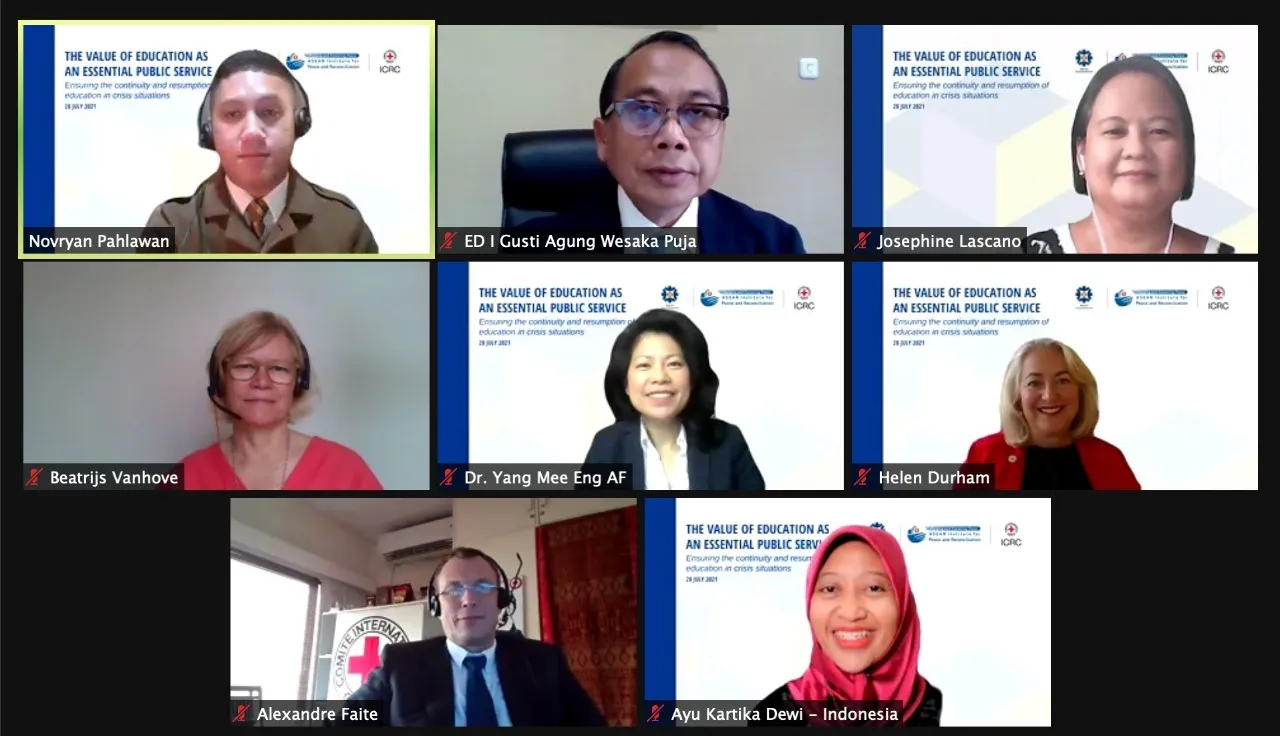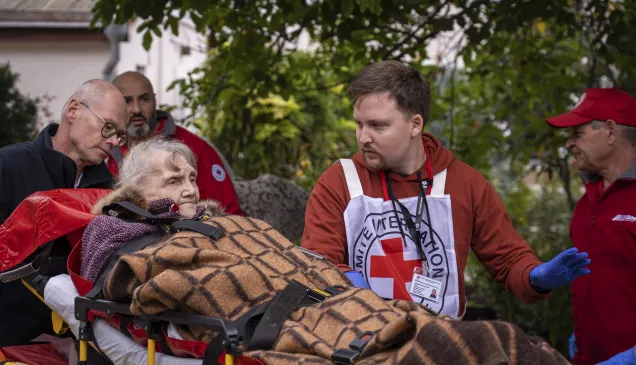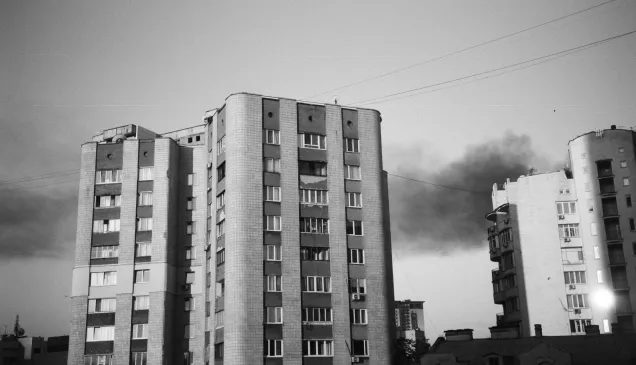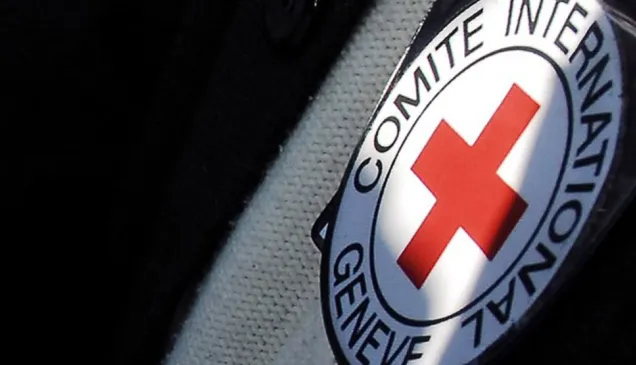Ensuring the continuity and resumption of education in crisis situations

Jakarta, Indonesia – Collaborative work among the authorities, education institutions, humanitarian organizations and other stakeholders in order to ensure the continuity and resumption of education in crisis situations was at the core of discussion during a webinar on Wednesday (28 July 2021), co-organized by ASEAN Foundation, ASEAN Institute for Peace and Reconciliation (ASEAN-IPR) and International Committee of the Red Cross (ICRC).
In her keynote speech, Dr Helen Durham, Director of International Law and Policy at the ICRC said that access to education and to safe schools is critically important, before, after and during crises; it creates a protective and stabilizing effect on the lives of children and their families.
"Ensuring the continuity of education and a safe learning environment, including during crises, is key to avoid creating a generation-wide education gap with long-term consequences for people and countries. Our experience tells us that we can prepare better to ensure the continuity of education during crises, whatever these crises may be." Dr Durham added.
The panel discussion and exchanges that followed underscored the need to reinforce and prioritize education as an essential public service, enhance preparedness and resiliency, develop robust infrastructure, and advocate for a stronger partnership among all stakeholders including government, community, schools and the private sector.
Dr Yang Mee Eng, Executive Director of ASEAN Foundation underlined that with the development of the ASEAN Work Plan on Education 2021-2025 underway, it is the duty of key ASEAN stakeholders to ensure that the new work plan is able to provide a strong foundation for the region's education system. This is also the right momentum to accelerate the public and private collaboration in providing a better recovery roadmap for ASEAN's education system.
Mr I Gusti Agung Wesaka Puja, Executive Director of ASEAN-IPR, highlighted that the ASEAN Political-Security Community (APSC) Blueprint called to promote education as an effective means to instil respect and values of tolerance, non-violence and mutual understanding to prevent the spread of extremism, as well as to address its root causes.
He further underscored that access to education acts as one of the main vehicles that allow upward socioeconomic mobility, as building blocks for national and local peace-building efforts.
Mr Alexandre Faite, the Head of ICRC Regional Delegation for Indonesia and Timor-Leste, highlighted that, for people affected by crises, especially armed conflict and other situations of violence, access to education is a key priority, particularly because education enables people to live and rebuild their lives with dignity and provides them with knowledge and skills to make important decisions about their life, livelihood, and well-being.
This online forum brought together the participation of representatives from the ASEAN Foundation, ASEAN-IPR including Members of the ASEAN Women for Peace Registry (AWPR), ASEAN Secretariat, ministries and state agencies, International Red Cross and Red Crescent Movement, think-tanks, universities, civil society organizations, humanitarian organizations, and ASEAN youth.
The Webinar was also live-streamed on the ASEAN-IPR's YouTube channel and is available for replay for those who missed the live-stream.



